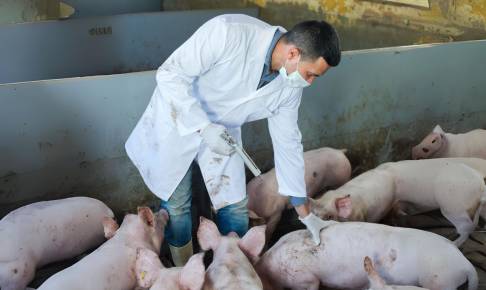FAO and the Republic of Korea teamed up to cooperate on AMR and other food safety issues
The United Nations Food and Agriculture Organization (FAO) and the Republic of Korea signed a Framework Arrangement to join forces on food safety issues on July 20th, beginning with a USD 10 million initiative to assist the implementation and monitoring of Codex standards targeted at strengthening agri-food systems by lowering foodborne antimicrobial resistance (AMR). FAO and the Republic of Korea will collaborate on a new initiative to assist many countries in implementing three Codex standards, one of which focuses on measures to control and limit the risk of AMR from the food supply chain.
Antimicrobial resistant bacteria kill about 700 000 individuals each year throughout the world. “… it is estimated that by the year 2050, antimicrobial resistant infections will kill more than 10 million people each year. These impacts will be felt the most in low and middle-income countries of the world where food insecurity is already problematic and health care systems are the weakest,” stated Jeffrey LeJeune, FAO Food Safety Officer.
Given that AMR may be transmitted through food, food safety authorities play an essential role in AMR management. According to FAO, regulations should only allow for the use of antimicrobials in agriculture that are sensible and judicious, in accordance with international norms. Food contamination may be reduced by improving food hygiene standards, and better monitoring of AMR in agri-food systems can give early warning of developing risks and insight into potential control strategies.
Source:
http://www.fao.org/food-safety/news/news-details/en/c/1416795/






















